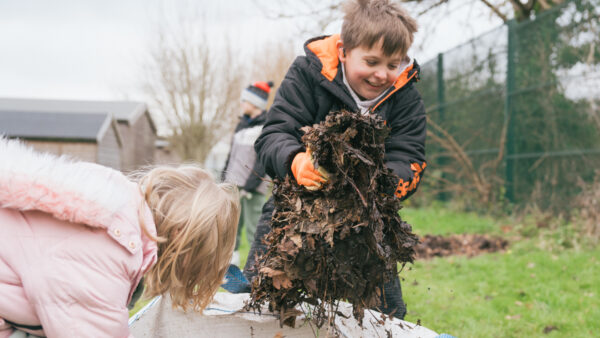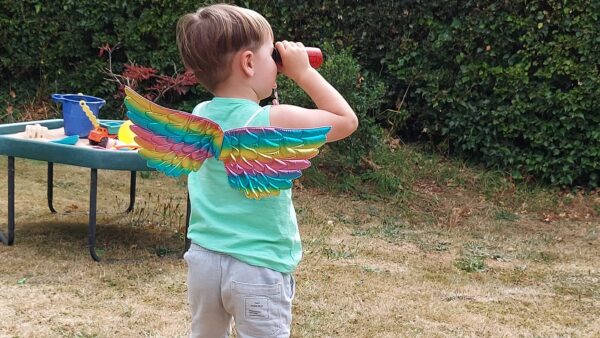How smell loss affects mental health and wellbeing
I don’t think I’m a super smeller but I’ve certainly always had a heightened sense of smell. A bin opened from the other side of the room, a lingering satsuma peel from a long ago eaten fruit, a change in washing up liquid, nothing goes unnoticed.
Over the years I developed many tactics for dealing with the overwhelming sensory input of smells. Subconsciously holding my breath when walking past certain shops, fragrance free toiletries, replacing over fragranced plants in the garden with more subtle ones and particular foods are only to be cooked in the garden!
Smells have a unique way of triggering memories for all of us and I’m certainly no exception. A whiff of a certain aftershave takes me straight back to 90s school discos, the smell of the tropics biome at Eden instantly transports me to my time backpacking in Latin America. Smells are powerful and grounding, helping us connect with our environment and the people around us.

When I caught Covid 19 in the summer I, like many people lost my sense of taste and smell. Initially I felt a wave of relief, my once stressful existence was muted, a blanket of smell-free cosiness enveloped me. I could use any hand soap without a headache, cooking smells didn’t cling to my clothes and putting the bins out was a joy. Perhaps I hadn’t realised the stress I was carrying around dealing with a world of triggering smells.
Smell loss is disorientating
But as each day passed, I began to feel a little lost. It was summer, lawns were getting mowed, and I couldn’t smell anything, a strange sense of ungroundedness took hold when I came out of isolation and went to other places. Things just didn’t seem quite right, my guide to the world became blindfolded. It was then that I realised the true power of our senses to guide and place us, to protect us and remind us. It is hardly surprising then that smell loss has been linked with depression, loneliness and eating disorders. Whilst we are well aware of our sense of sight and hearing, many other senses are whirring away in the background working hard to process the world around us.
Our sense of smell defines our relationship with food, our sense of wellbeing, confidence and relationships with others so the impact of smell loss is serious.
AbScent UK
Six months on and my sense of smell is back but in a jumbled-up way. Onions and garlic smell putrid, rotten and yoghurty. Anything strawberry flavoured just smells weird, and perfume, the bane of my life smells sharp, acrid and even more headache inducing. The experts call this parosmia – abnormality or distortion of smell. Apparently, it will go in time and can be part of the recovery process.
Smell change and loss is a growing issue
Since the pandemic many more people are suffering from smell loss and distortion bringing sensory impairments into the mainstream. AbScent UK, a national charity advocating for those with smell loss have some brilliant help and advice for those dealing with this. Their smell training programme is well worth following, something that I frequently recommend to anyone who loses their smell through Covid.
Sensory design must reflect this growing cohort of people
This increase in people experiencing smell distortions has a wider impact on the planning and design of sensory spaces. There is often a temptation when creating a sensory garden for example to overload on scented plants. Consider a few key scents and focus more on scents that people activate through touch rather than plants that waft their scents over distance. Smells should be an invitation not an obligation.
Losing my sense of smell, albeit temporarily forced me to reconnect with one of my senses that I previously had a difficult relationship with. People used to comment about my fantastic sense of smell and I’d quip it’s a curse not a blessing but now I’m not so sure.



